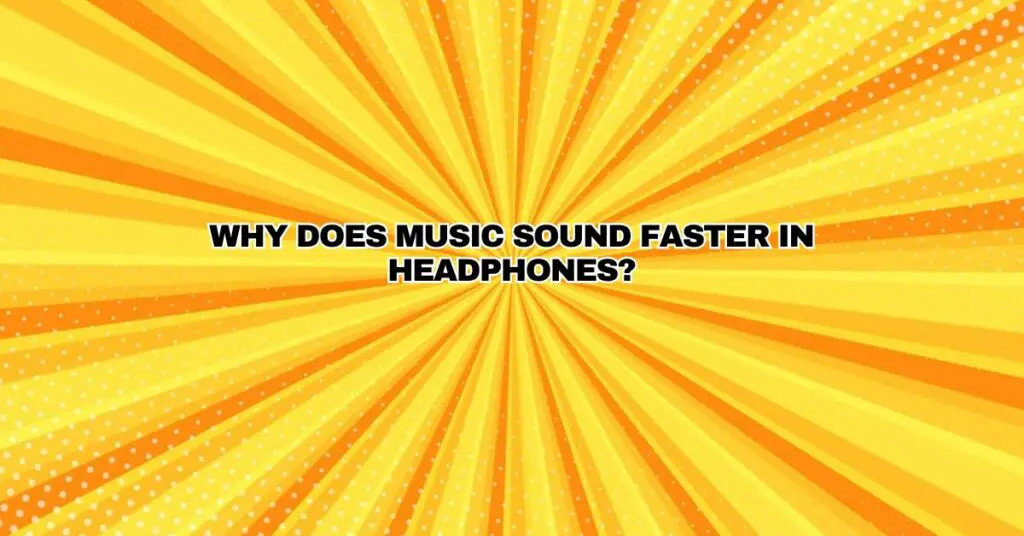The experience of listening to music can be profoundly influenced by the choice of audio equipment, particularly headphones. Audiophiles and casual listeners alike may have noticed an intriguing phenomenon: music often seems to sound faster when played through headphones compared to speakers. This fascinating time perception alteration has been the subject of much curiosity and debate. In this comprehensive article, we will explore the reasons behind this phenomenon, delving into auditory psychology, the physics of sound, and the unique characteristics of headphones.
Auditory Perception
Auditory perception, or how we hear and interpret sound, is a complex process that can be influenced by various factors, including the mode of audio delivery, such as headphones or speakers. Several key factors contribute to the perception of music sounding faster through headphones:
- Isolation: One of the primary reasons music might seem faster in headphones is the sense of isolation they provide. When you wear headphones, the sound is delivered directly into your ears, eliminating external auditory distractions. This isolation can lead to a heightened perception of time, making the music appear to progress more rapidly.
- Detail and Clarity: Headphones, particularly high-quality ones, excel at revealing intricate audio details and nuances. This enhanced clarity can make it feel like you’re absorbing more musical information in a shorter time, thus contributing to the sensation of increased tempo.
- Stereo Imaging: With headphones, the stereo image is often more precise and immersive. This heightened sense of spatial accuracy can make music seem to move at a faster pace as it dynamically shifts between the left and right earcups.
Binaural Hearing
Binaural hearing, our ability to perceive sound through both ears, plays a significant role in how we experience music through headphones. Our brain is highly sensitive to time differences between when sound reaches each ear. These minute time disparities are essential for our ability to locate the source of a sound in space.
In the context of music, the meticulous spatial and temporal information provided by headphones can contribute to the perception of music sounding faster. Each note, instrument, and vocal passage is delivered with precision to each ear, potentially making the rhythm and timing feel accelerated.
Sound Propagation and Speed
The speed of sound in air is approximately 343 meters per second (or about 1235 kilometers per hour). When listening to music through speakers in a room, sound waves generated by the speakers travel through the air to your ears, covering some distance.
In contrast, headphones deliver sound directly to your eardrums, which eliminates the need for sound to travel through the air. This direct transmission can create the sensation of music being more immediate and faster in tempo. You are essentially “bypassing” the physical constraints of sound propagation through space.
Psychological Factors
Psychological factors also come into play when explaining why music may appear faster when heard through headphones:
- Focused Attention: Listening through headphones often involves more focused attention. When you’re attentive and immersed in the music, you may perceive time differently, with a sensation that the music is progressing more rapidly.
- Emotional Engagement: Headphones can create a deeply personal and intimate listening experience. The emotional engagement with the music might lead to a sensation of time passing quickly, as you’re fully absorbed in the musical journey.
Conclusion
The perception of music sounding faster through headphones is a multifaceted phenomenon influenced by auditory perception, binaural hearing, sound propagation, and psychological factors. The isolation, clarity, and spatial precision of headphones contribute to this unique experience, making music feel more immediate and engaging.
It’s essential to recognize that individual perceptions of time in music can vary, and what one person experiences as “faster” may not be the same for another. Ultimately, the enjoyment of music, whether through headphones or speakers, is a subjective and personal experience, and the sensation of altered tempo adds to the rich tapestry of auditory enjoyment.


